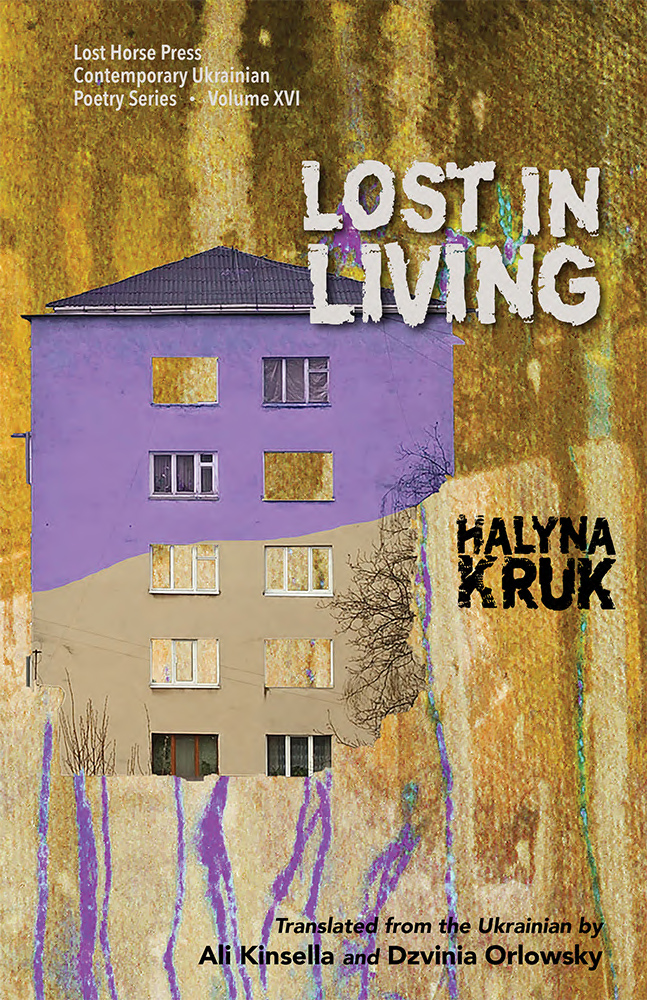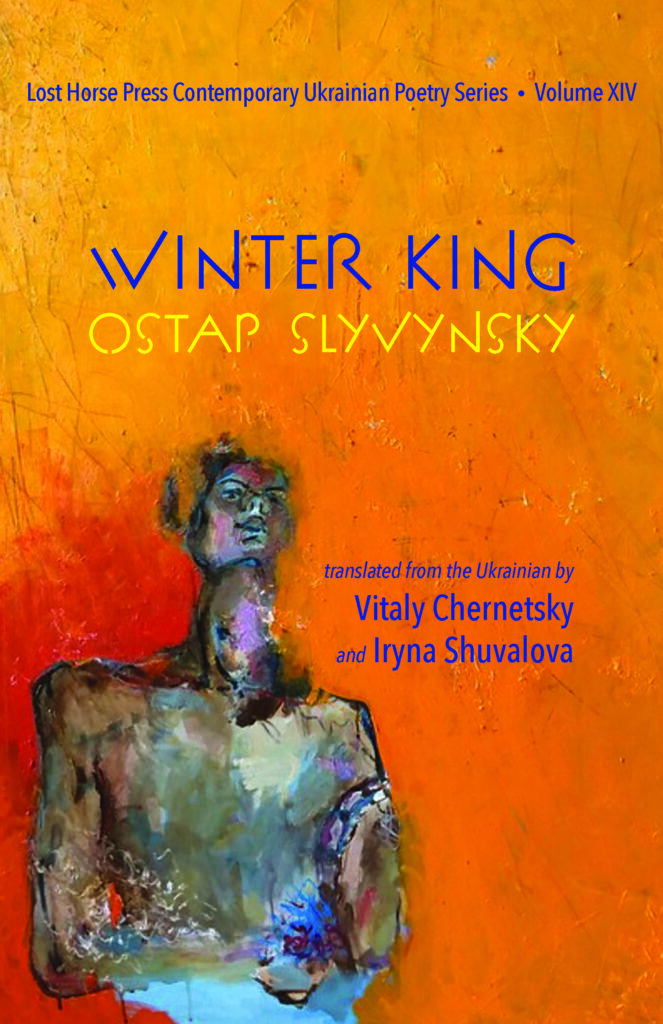Lost Horse Press Contemporary Ukrainian Poetry Series
In 2017, Christine Holbert (publisher) and Grace Mahoney (series editor) established the Lost Horse Press Contemporary Ukrainian Poetry Series. The series features dual-language editions of poetry from Ukraine’s most significant poets operating in the contemporary context. These critically-acclaimed and award-winning books showcase the diversity of poets who write from a range of geographies, poetic perspectives, and literary movements. Of critical importance is the fact that many of the poems featured in this series meditate on the significance of Ukraine’s independence and the positionality of the poet in a literature-centered culture in times of war.
Halyna Kruk’s LOST IN LIVING will be released in Late Spring 2024 • Pre-order your copy now!
Lost in Living presents Halyna Kruk’s unpublished work from the immediate “pre-invasion” years when life in Ukraine was marked by turmoil but full-scale war was not yet normalized. In these “dear poems that don’t pain [her] like those about the war do,” Kruk uses imagery and tone to underscore poetic agency, at times juxtaposing figurative language with a calm, direct voice to bring her poems to life. Nature cannot be relied on to sustain nor renew, and life is shown to be fundamentally vulnerable. “Calm” is a seductive state of mind capable of cunning, and the speaker is unable to find a place where she can thrive or grow. Still, daily tasks emerge as life-affirming and a welcome constant. It is ultimately a movement toward survival that drives the immediacy and urgency of Kruk’s poetry. Lost in Living is the sixteenth volume in the Lost Horse Press Contemporary Poetry Series.
Praise for Lost in Living
Halyna Kruk is a poet of lyrical spells and musical whispers. Her human-scale voice confronts the inhumane historical landscape out of which she speaks insisting on a personal life, the life of a human heart and its ancient search for a bit of light in the dark.
—Valzhyna Mort, Music for the Dead and Resurrected
Lost in Living, a selection of Halyna Kruk’s breathtaking poems written during the escalation of the Russo-Ukrainian war paints haunting inner landscapes where dreams and reality’s multiplying shadows intertwine. A searing, lyrical, and timely meditation on loss, memory, death, and love, this deeply spiritual collection explores the poet’s dichotomy of emotions: “what’s wrong with us, why this confounding joy/to love this world, it’s enough to almost die/a few times,” “if death were a writer’s residency,/I would have applied long ago.” Masterfully translated by Ali Kinsella and Dzvinia Orlowsky, the poems act like a time machine, and Kruk’s alchemical self finds wonderment amid despair: “I’m still like a child/who got lost and found herself.”
—Hélène Cardona, Life in Suspension
At its best, poetry expresses and even anticipates the times. Although Halyna Kruk tells her own personal story in her important collection, Lost in Living, a glimpse of the era in which she is living is always apparent, and the brute facts of our recent history are never far from our reach in her haunting poems. Here, language is refined to express the essence of deeds and things, and her primary concern is for a deeply truthful telling of who we are and what the consequences are for our behavior in a post-modern world. In the hands of two deft and accomplished poet-translators, Kinsella and Orlowsky, who understand what Borges meant when he wrote that “the original is unfaithful to the translation,” Kruk comes alive in English, largely, I would argue, because of the translators’ ability and willingness to stay out of the way of these rich poems. This is literary translation at its best.
—Bruce Weigl, Among Elms in Ambush and the forthcoming Apostle of Desire/
Winter King by Ostap Slyvynsky presents a selection from a decade and a half worth of work by one of Ukraine’s most prominent contemporary voices in poetry. Slyvynsky is the poet of everyday things. He writes of children’s games, old trees, and family stories. Yet, what emerges from under his pen is the portrait of an era. His writing, simultaneously delicate and unflinchingly incisive, like a surgeon’s hand, always probes for the bottomless depths gaping behind the mundane. Perhaps the greatest of Slyvynsky’s gifts as a poet is his ability to examine individual voices and memories for traces of larger historical events without ever trivializing the former in the face of the latter. His spare, lean poems unearth a complex and layered human reality that is both universal and strikingly, almost painfully, rooted in the landscape that birthed it, be it the poet’s family home in the Carpathian Mountains or the Maidan Square in Kyiv, aflame with revolution. Slyvynsky’s remarkable attention to detail results in strikingly beautiful and enigmatic texts that invite multiple re-readings, each peeling off yet another layer of reality. However, what always remains at the core after these layers are stripped off is the poet’s profound humanity. Drawing on three of Slyvynsky’s earlier poetry collections, this volume also includes some of his most recent poems—arguably, among the poet’s best.

